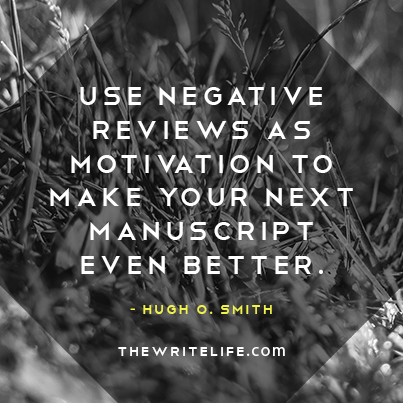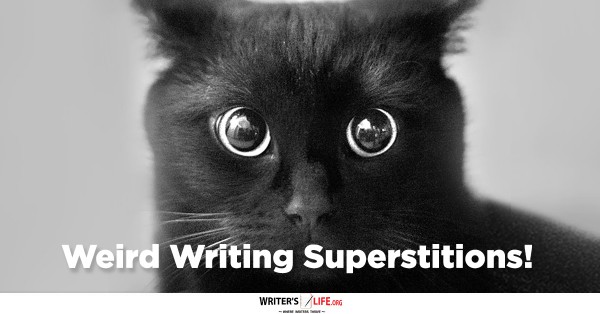As writers, should we choose to look for it, we can find advice about almost every aspect of our craft.
From how to develop your characters to plotting your plot. From how to approach publishers, to how to make a success from DIY publishing - there are literally thousands upon thousands of pieces of advice out there.
Which is great.
There is a tiny problem, however. Not all of it agrees.
Of course, as with anyone that has had an opinion on anything ever, there will always be someone who feels the exact opposite way. But when it comes to writing we are often bombarded with so many rules, so many do’s and don’ts that it can not only feel overwhelming, but can actually have a negative impact on the quality of our writing, and how much we enjoy doing it too.
There are lots of so called ‘writing rules’ that seem to be bandied about quite often. Rules which don’t necessarily make any sense. Here are just some of them that we think should definitely be taken with a pinch of salt.
1. Don’t reference anything contemporary otherwise, your book will go out of fashion
Cultural references can actually be helpful in creating your world, grounding the reader and helping them to visualise and relate to your story. Your book won’t suddenly become dated because you’ve mentioned an iPhone or a certain model of car or a song that is currently popular. If you think contemporary references add to your story then use them
The same can be said about making cultural references to the past. Since I'm writing a memoir, I've had to reference lots of people my age will remember, but which kids today aren't aware of. A payphone, a VCR, the Walkman, among other things we kids in the '80s used and remember. I can remember when VCRs were too expensive for most people, which I have referenced in my story. I have also begun working on something else, though I haven't done much on this one lately. In this '80-set book, the main boy says how he thinks his mom can't afford this "new thing called a VCR that allows you to record TV shows to watch later."
2. Don’t start by describing the weather
OK so opening with ‘it was a dark and stormy night’ can seem a little cliched, but if the weather is important to set the tone and the mood of your story, don’t shy away from including it in your opening lines. If you can describe the weather in an arresting and unusual way, this can capture your reader's attention from the outset and pull them into the story.
One thing we learned at the recent memoir writing class was to avoid cliches. But for me, weather hasn't been the most important part of what I am writing. And certainly not the beginning part.
3. Always start in the middle of some action
Many excellent books don’t start in the middle of a scene. Some begin by describing a character or details of the world the book is set in. Of course, action doesn’t necessarily mean ‘in the middle of a raging intergalactic battle.’ But there are other ways to begin your story, and if they feel right to you, just go with it.
This one is not exactly pertinent to what I am working on either, but definitely a rule that can be used the way you think it fits in your story.
4. Don’t make the opening scenes to dark or depressing
Some pieces of advice appear to say that starting your book on a low point will depress and put off your readers. This is nonsense. Every book is different and opening yours where the protagonist is about to do something dreadful, or something dreadful is happening to them, can actually be incredibly powerful.
Even though I'm writing a memoir on depression, I chose to being my prologue with some background on myself and where I live, then proceed to tell the the main story. BTW, I just decided to add the information above, as I had originally began my prologue without mentioning my name.
5. Never use sentence fragments - your readers won’t understand
People don’t speak in full, proper sentences all the time do they? Nor do they have perfect English. If you want your character's dialogue to be believable, writing in sentence fragments, or having them stutter or trail off, can be an effective way of doing so.
Yeah, this was something our teachers always said not to do. But I recently have seen some books with sentence fragments. I have tried avoiding using sentence fragments, but have found using them a way to break up overly long sentences.
6. Don’t read while you're writing
Some advice claims that reading books while you are writing will either put you off, or it will mean you immediately copy that writers style. This is ridiculous! Reading is a fantastic way of inspiring writers and helping us to learn and grow.
Yes, we have always been told to read while we write. Who has said otherwise? No one that I know.
7. Always write in the present tense
Some pieces of advice even baulk at the idea of using the word ‘was’. While writing in the present tense does bring immediacy to a book, if you choose to write in the past tense, or have instances where you do, it doesn’t mean that your book won’t be a success.
I nearly always have written in the past tense, as I once assumed that was how we were supposed to write. And what I am doing was in the past, so it stand t reason that I mostly used past tense.
8. Always have a happy ending
Believe it or not, readers don’t need to have a happy ending to enjoy a book. If you feel your book should end in a way that your protagonist doesn’t get what they want, or they do but at such significant cost it barely seems worth it, this can be just as effective. It may leave the reader feeling shocked and upset - but not cheated, and that’s the most important thing.
Yeah, not all endings can be happy. What else can I say to this one?
Writing advice is great, and can really inspire writers and help them to improve. However, if a rule doesn’t feel right to you there is no need to take it as gospel. Sometimes breaking the rules is what it’s all about after all!
Some of these I was not aware of to begin.









